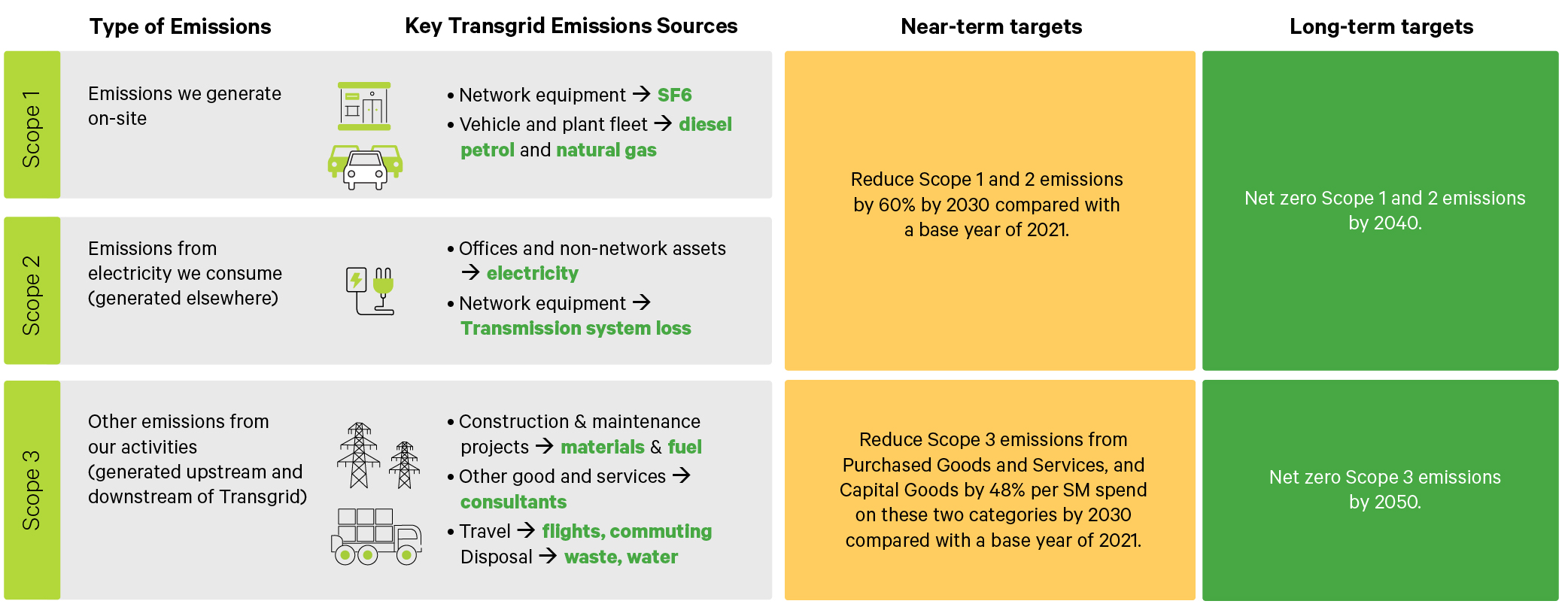Our journey to net zero
At Transgrid, we are leading the transition to a clean energy future. Our responsible delivery and maintenance of the NSW & ACT network is accelerating Australia’s energy transformation by creating more capacity for renewable energy generation and use.
Enabling Australia’s clean energy future is our biggest contribution to avoiding dangerous climate change. We also have a responsibility to deliver a fit for future electricity network that minimises climate impact in construction and operation.
Transgrid is building on its leadership in the energy transition by rolling out credible and ambitious long-term greenhouse gas emission (GHG) reduction targets.

These targets are science-based targets (SBT) aligned to the level of decarbonisation required to keep global temperature increases to 1.5 °C or well below 2°C compared to pre-industrial levels set by the Science Based Target Initiative (SBTi).




